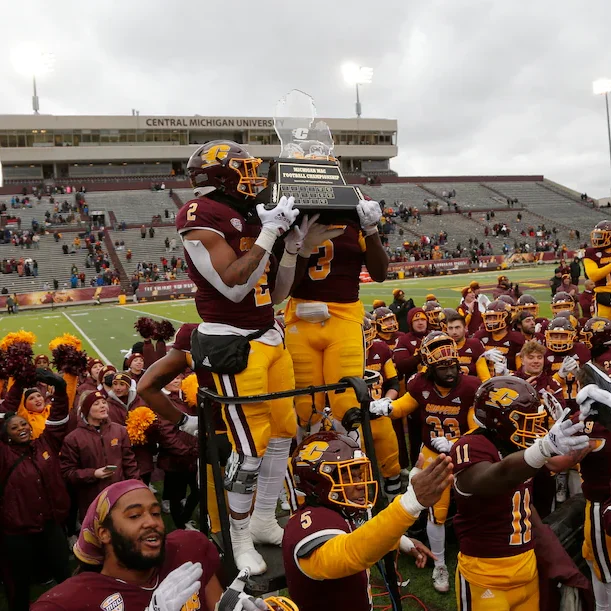The Arizona Bowl, scheduled for Friday, was canceled Monday night. It became the fourth bowl game called off in the wake of a nationwide spike in coronavirus cases.
Washington State, Miami’s scheduled opponent in the Sun Bowl, did not learn of the Hurricanes’ withdrawal until Cougars players and staff arrived at the site of the game in El Paso on Sunday. At that point, Washington State Athletic Director Pat Chun said in a statement that he would work with bowl officials and the Pac-12 to “hopefully find a replacement opponent for the game.”
The Sun Bowl’s executive director, Bernie Olivas, expressed doubt Sunday that a bowl-eligible replacement team could be found on such short notice, but he allowed for the possibility that one of “those teams that got canceled might be available right now.” That’s how it played out Monday, leaving Chun to share his gratitude for the efforts made by bowl and school officials.
“A special thank you to CMU’s director of athletics Amy Folan and head coach Jim McElwain for prioritizing the bowl experience for both teams,” Chun said in a statement, “especially the seniors who will be playing their final college football game.”
Having landed in Tucson on Monday morning, the Chippewas discovered they would be taking a second trip approximately 300 miles east, but the decision put them on a bigger stage with a much larger financial reward for their program. Whereas the Arizona Bowl was to be streamed on Barstool Sports platforms with a reported payout of $350,000, the Sun Bowl will be broadcast on CBS and streamed on Paramount Plus, with a payout of $4.55 million. In addition, the Sun Bowl’s history dates from 1935, making it one of the oldest of college football’s postseason events.
Boise State announced Monday that it had “shut down all team activities as a result of COVID-19 protocols” and as such could not compete in the Arizona Bowl.
“We feel for the young men in our program who were very much looking forward to closing out their season, and for some, their football careers,” Athletic Director Jeramiah Dickey said in a statement.
Washington State Coach Jake Dickert tweeted Sunday that his team was “willing to play any opponent.”
“Our team just wants one more chance to finish this storied 2021 season,” Dickert wrote.
Miami had delayed its trip to El Paso until possibly as late as the day before the game before deciding Sunday to withdraw. More than 10 players were reported to have tested positive as of Tuesday.
“Due to the number of COVID-19 cases impacting our roster we do not have enough student-athletes to safely compete, and the health and safety of our student-athletes will always be our top priority,” Jennifer Strawley, Miami’s deputy director of athletics/chief operating officer said in a statement Sunday. She described her program as “extremely disappointed” about its inability to participate.
“This team worked hard all season to earn a bowl invitation and my heart goes out to our student-athletes, especially our seniors,” Strawley said. “ … We regret the impact this has on the Washington State program and their postseason experience.”
Earlier Sunday, coronavirus issues for Virginia and Boston College led to the cancellations of, respectively, Wednesday’s Fenway Bowl and Monday’s Military Bowl. Virginia had been set to face SMU, while East Carolina was Boston College’s slated opponent.
The Hawaii Bowl was canceled Thursday, a day before it was set to be played, after a University of Hawaii official pointed to a “recent surge” of positive tests for the virus in announcing his school’s withdrawal.
When Texas A&M, citing a lack of available players, withdrew last week from the Gator Bowl, it was replaced by a Rutgers team with a 5-7 record. The NCAA’s Division I Football Oversight Committee announced at the time that, in addition to allowing losing teams that hit certain academic benchmarks to become bowl eligible, it would allow any bowl game to be moved to as late as Jan. 10 without a waiver.
The Sun Bowl Association has announced that Central Michigan University has now accepted an invitation to play in the 88th Annual Tony the Tiger Sun Bowl on Friday, Dec. 31, 2021, at 10 a.m. (MT) in El Paso, Texas.
— Sun Bowl Association (@TonyTheTigerSB) December 28, 2021
DETAILS: https://t.co/Nw6Mw73nZP#GameOn pic.twitter.com/Xcp2zA5L1m


